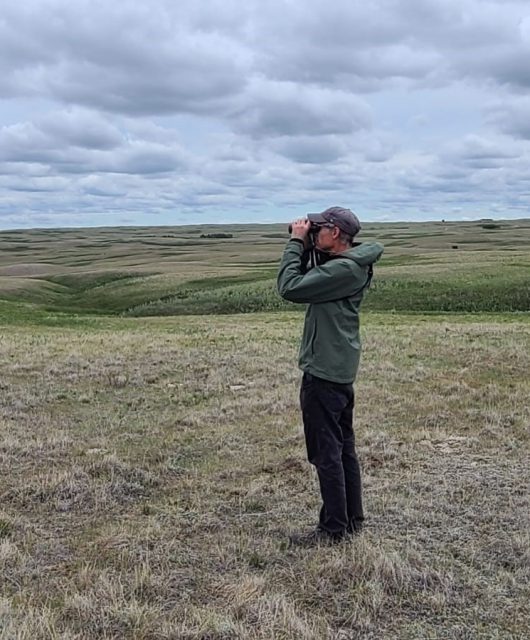Shell yeah, we have more than 60,000 uploaded observations on iNaturalist Canada!
iNaturalist Canada is a powerful community science platform that allows people across the country to record the native and exotic species they see. Understanding what species occur in different parts of the country is important to protecting species and their habitats.
The Canadian Wildlife Federation created a project called Help the Turtles (Aidons les tortues) to pull together all the observations of turtles in Canada on iNaturalist. And people responded. In June of this year, the project achieved a major milestone: 60,000 observations of turtles!
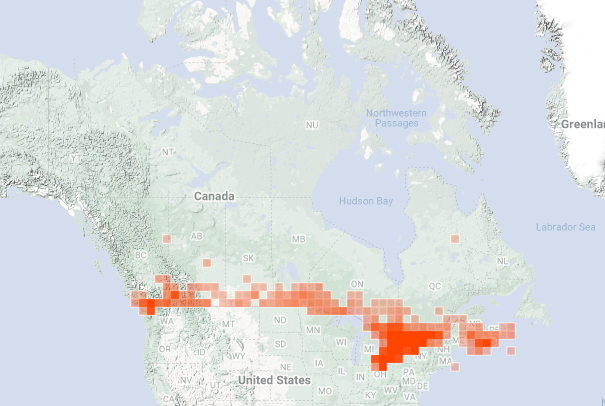
More than 11,000 people have contributed observations of turtles in Canada, from British Columbia to Nova Scotia and every province in between. What can we learn from these observations?
Painting the Way
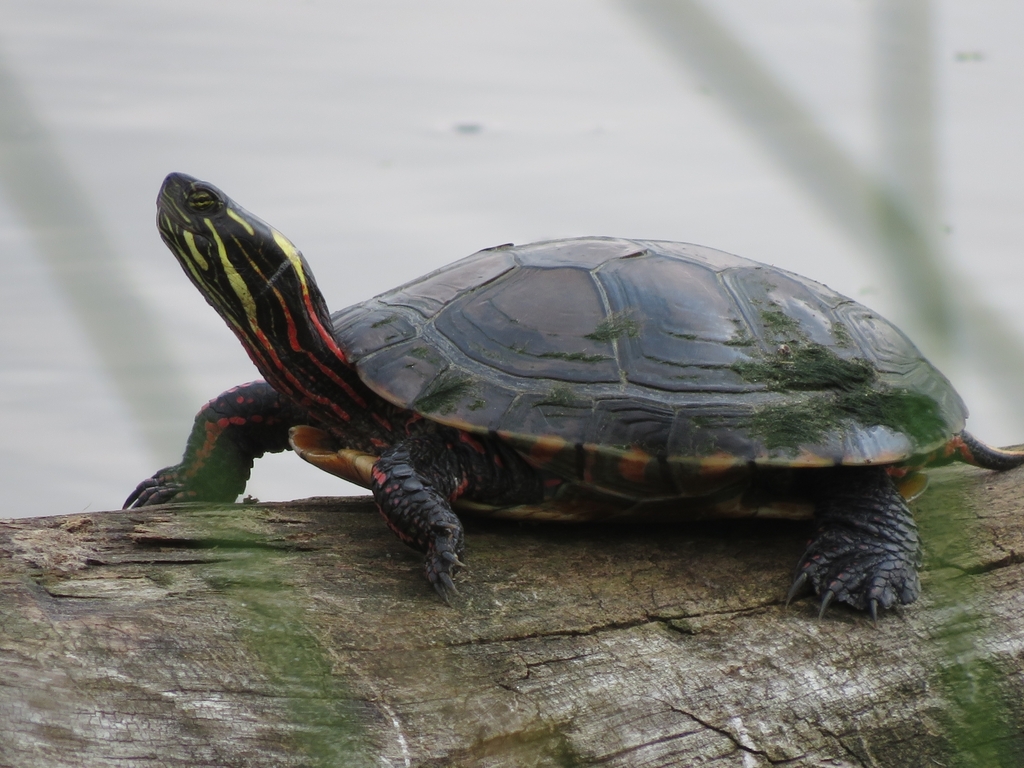
Almost half of the observations are of Painted Turtles. This result isn’t completely surprising as it is also the most widespread turtle species in Canada, found from the west coast to the east coast. It does underscore how widespread and common the Painted Turtle is even in many urban areas. It was also good to see 5000 observations of the Blanding’s Turtle, as species that is now Endangered in Canada. Although this species is declining, it remains widespread.
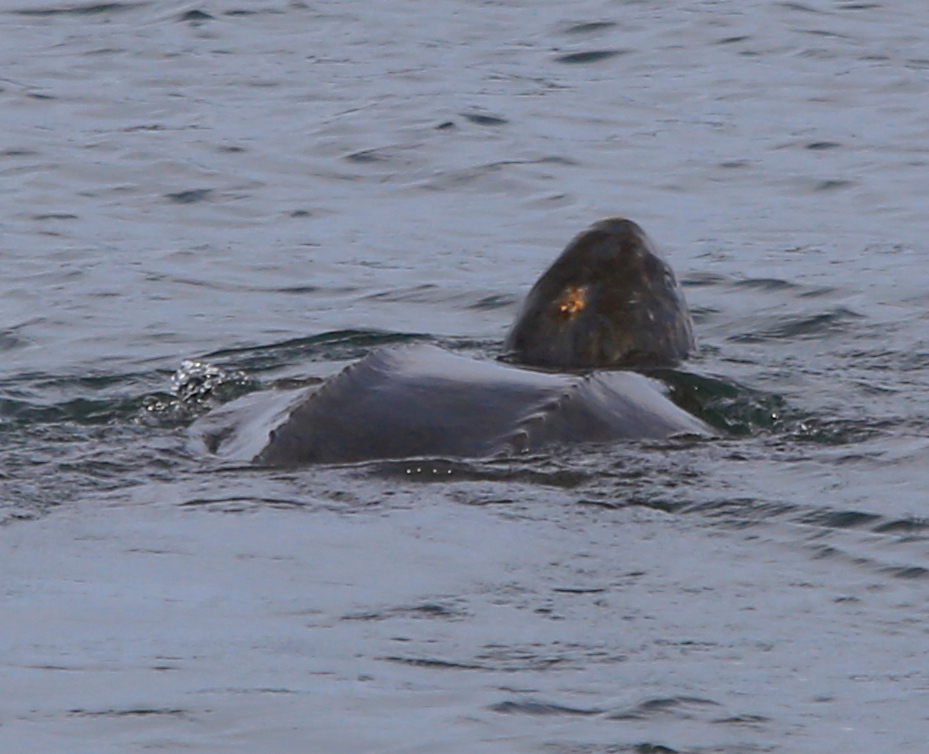
There were also observations of three different species of sea turtles in Canada. Did you know that sea turtles sometimes swim up to Canadian waters on either the east or west coast?
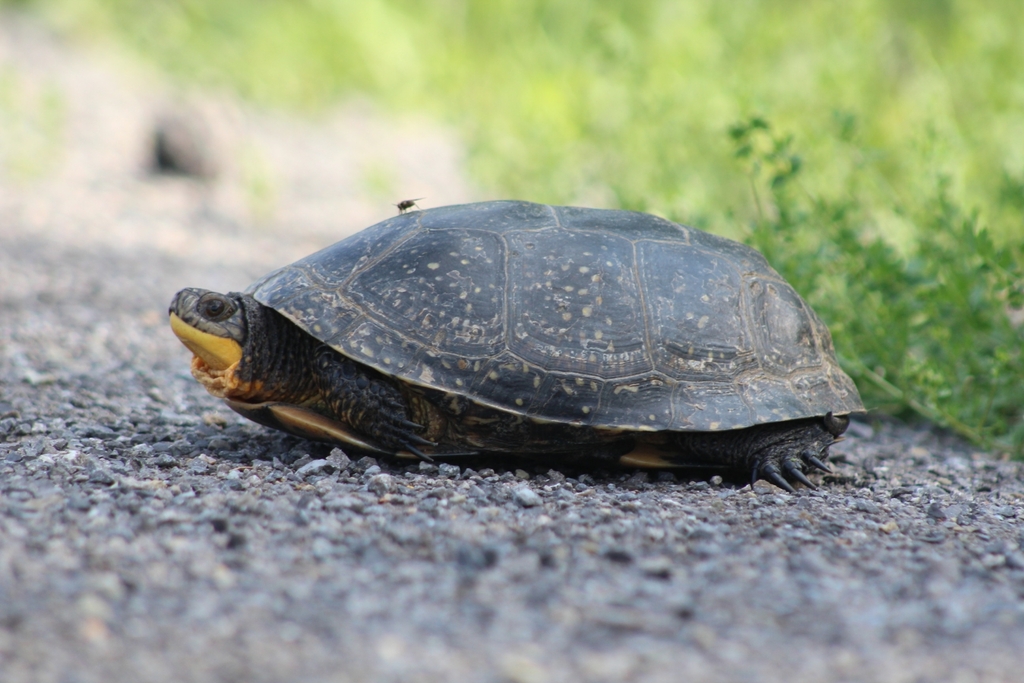
Another surprising result is that over 80 per cent of turtle observations are from Ontario. While Ontario has the most iNaturalist users of any province, and the highest number of species of turtles, it is still impressive how one province dominates the turtle observations.
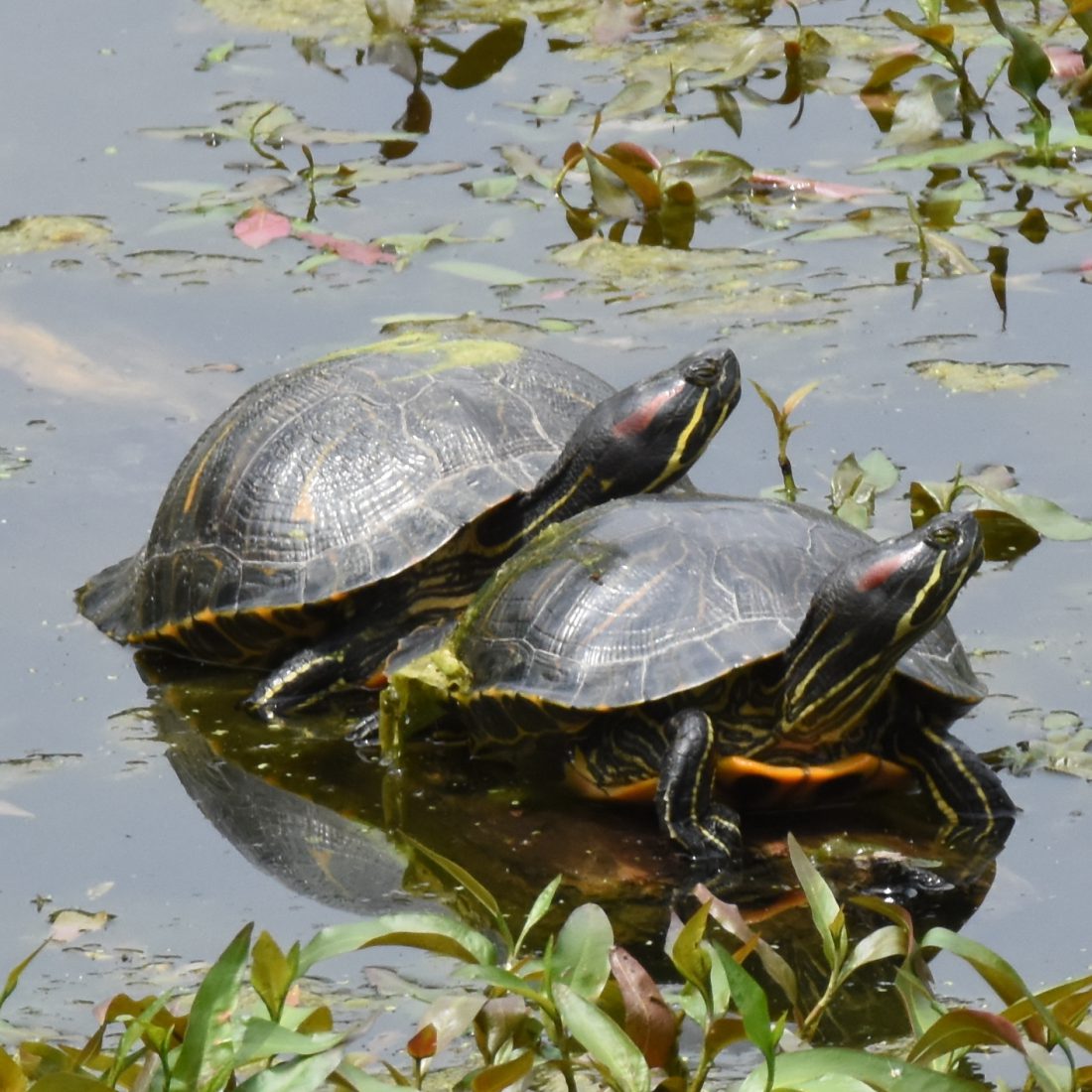 One disappointing result is that the Pond Slider, an exotic species in Canada, is the fifth-most common turtle species reported on iNaturalist. We have eight native species of freshwater turtles in Canada, so the Slider is more commonly reported than four of our native turtle species. One reason for this is that Sliders occur in many urban areas where they are apt to be observed and reported. They are also widespread with reports from British Columbia to Nova Scotia.
One disappointing result is that the Pond Slider, an exotic species in Canada, is the fifth-most common turtle species reported on iNaturalist. We have eight native species of freshwater turtles in Canada, so the Slider is more commonly reported than four of our native turtle species. One reason for this is that Sliders occur in many urban areas where they are apt to be observed and reported. They are also widespread with reports from British Columbia to Nova Scotia.
Unfortunately, the Slider is not the only exotic turtle found in Canada. More than a dozen exotic turtle species have been reported on iNaturalist. Most of these have very few observations and some of those may be pets photographed in someone’s backyard. Other species are definitely being purchased as pets and then released into the wild when no longer wanted. For example, there are 20 observations of False Map Turtle on iNaturalist, from British Columbia, Ontario and Quebec. Released pets can pose a number of potential risks, including the spread of diseases that could be lethal to other species. Never release unwanted pet turtles into the wild.
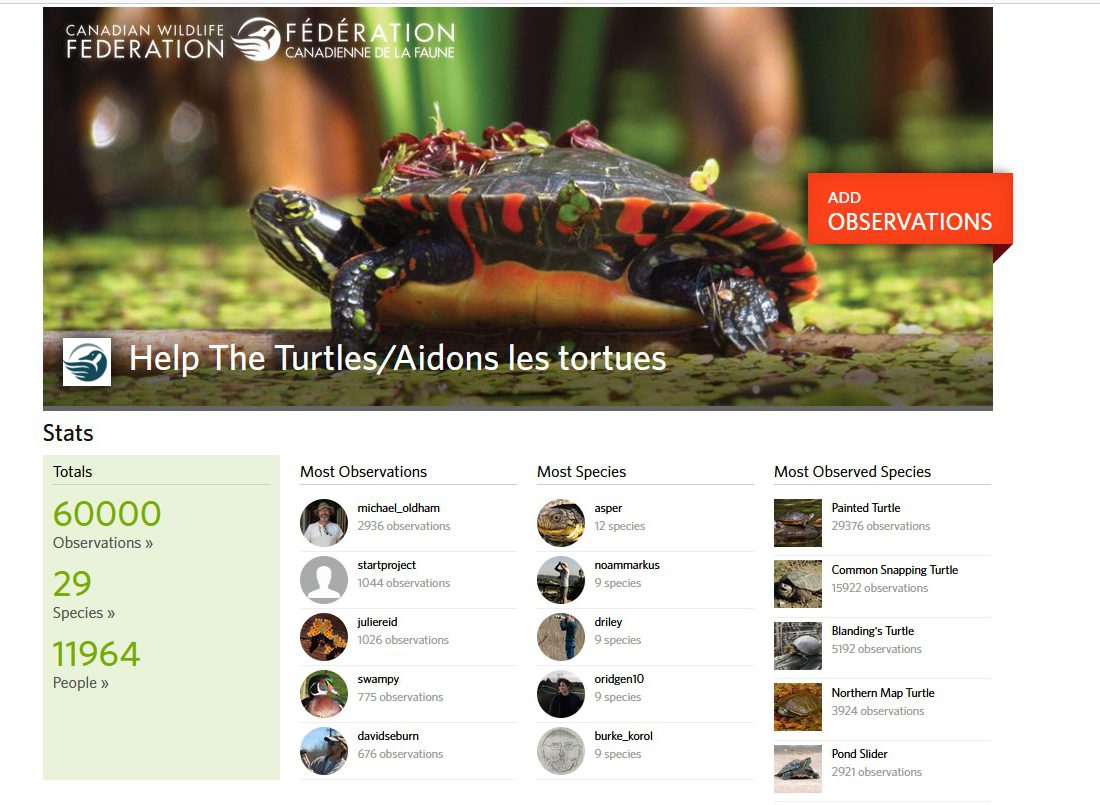
These turtle observations are also contributing to turtle conservation. The CWF turtle team recently used iNaturalist observations of the Red-eared Slider (a subspecies of the Pond Slider), a turtle known to be aggressive to other turtles, to see if they will share basking sites with native species of turtles. We also used iNaturalist observations of Northern Map Turtles to assess the injury rate from boat propellers.
If you haven’t joined the iNaturalist community please consider doing so. And if you have joined iNaturalist Canada, keep those observations coming!

